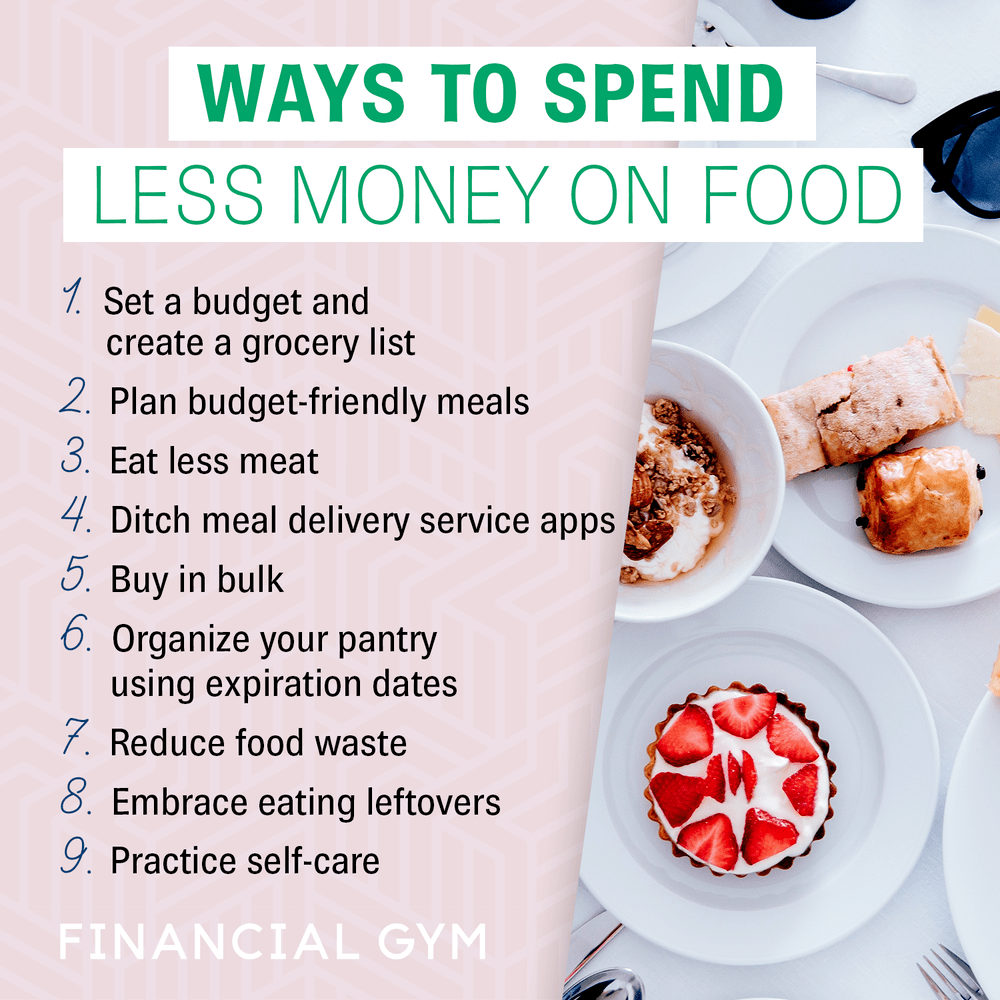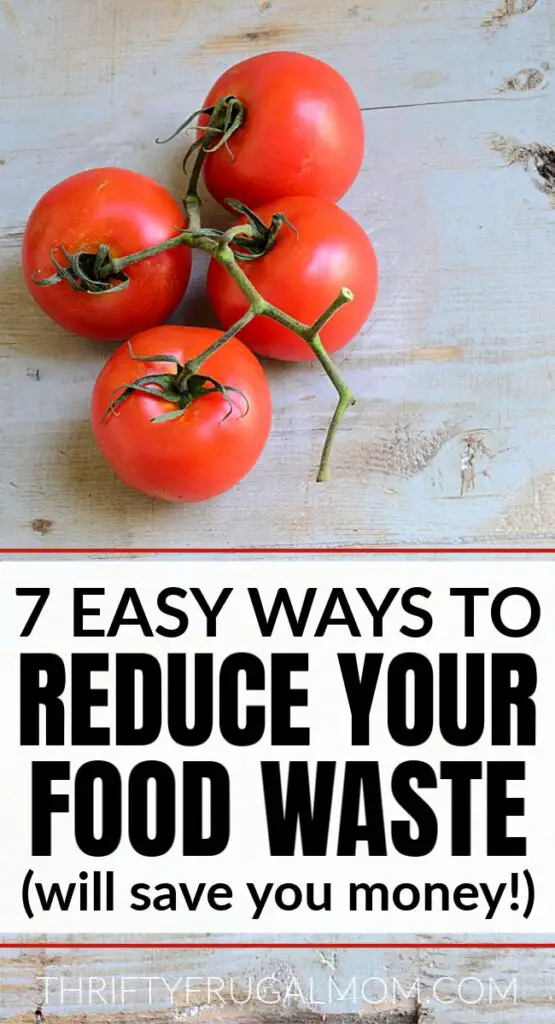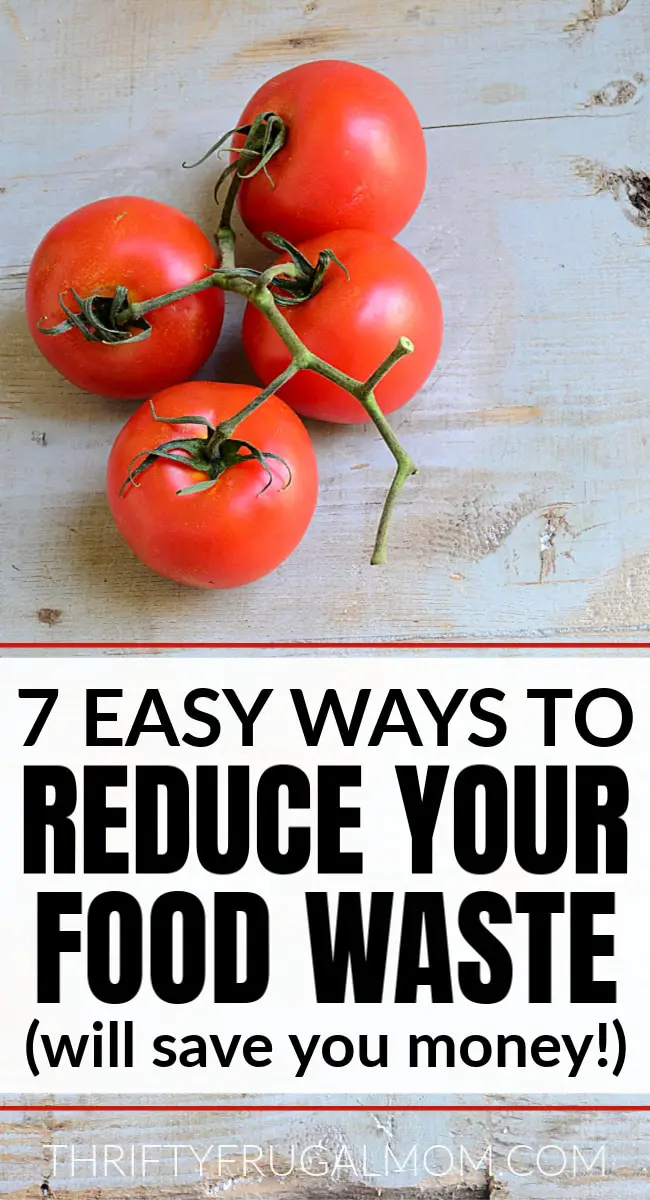Introduction
Welcome to Frugal Food Tips: How to Reduce Food Waste and Save Money. In this section, I will discuss the importance of reducing food waste from a frugal living perspective. At FrugalDude.org, we believe that practicing frugality goes beyond just saving money – it’s about living a mindful and sustainable lifestyle.
What is frugal living?
Frugal living is all about making conscious choices to maximize the value of our resources. It means being mindful of how we spend our money, time, and energy. By making intentional decisions, we can prioritize what truly matters to us and avoid wasteful practices.
Why is reducing food waste important?
Reducing food waste has numerous benefits, both for our wallets and the environment. When we throw away food, we are not only wasting the money we spent on purchasing it, but also the resources used in its production, transportation, and storage. By cutting down on food waste, we can save money, reduce our ecological footprint, and contribute to a more sustainable future.
The connection between frugal living and food waste reduction
Frugal living and reducing food waste go hand in hand. When we adopt a frugal mindset, we become more conscious of what we buy and how we use it. We learn to plan our meals, buy only what we need, and make the most of our ingredients. By reducing food waste, we can stretch our budget further, as wasted food equates to wasted money. Additionally, being mindful of our food consumption helps us appreciate the value of each meal and encourages us to find creative ways to utilize leftovers.
In the upcoming sections, I will provide practical tips and strategies on how to reduce food waste while on a frugal lifestyle. Together, let’s embark on this journey towards a more sustainable and financially responsible way of living.
Understanding Food Waste
Defining food waste
Food waste refers to the disposal of edible food that was not consumed before its expiration date or spoiled due to improper storage or handling. As a frugal individual, I always aim to minimize food waste and make the most out of every ingredient I purchase.
Types of food waste
Food waste can be categorized into two main types: pre-consumer and post-consumer waste. Pre-consumer waste occurs during the production, processing, and distribution of food, such as imperfect products discarded by farms or supermarkets. Post-consumer waste, on the other hand, happens after the food is purchased by consumers and is often a result of overbuying or not utilizing leftovers effectively.
Causes of food waste
There are various reasons behind food waste, and being aware of these causes can help us reduce our own waste. Overbuying is a common cause, as many of us tend to purchase more groceries than we can consume within a reasonable time frame. Poor meal planning and improper storage practices also contribute to food wastage. Additionally, societal pressures to maintain perfect-looking produce lead to the rejection of slightly imperfect fruits and vegetables, further contributing to food waste.
Impact of food waste on the environment and economy
Food waste has a significant environmental and economic impact. When food is wasted, the resources used to produce it, including water, energy, and labor, also go to waste. Rotting food in landfills produces methane, a potent greenhouse gas that contributes to climate change. Moreover, wasting food means wasted money for consumers and businesses alike, highlighting the importance of reducing food waste from a frugal perspective.
Reducing food waste is not only beneficial for our wallets, but it also has a positive impact on the environment and economy. In the following sections, I will share practical frugal food tips to help you minimize waste, save money, and contribute to a more sustainable future. Stay tuned for these valuable and easy-to-implement strategies!

Benefits of Frugal Food Tips
Financial savings
One of the main advantages of adopting frugal food tips is the significant amount of money that can be saved. By reducing food waste and utilizing ingredients to their fullest potential, I have noticed a substantial decrease in my grocery bill each month. Rather than constantly buying new groceries and throwing away unused items, I have learned to make the most of what I already have in my pantry and refrigerator. This has not only helped me save money but has also encouraged me to be more creative with my meals.
Reducing environmental impact
Another important aspect of frugal food tips is their positive impact on the environment. Food waste is a major contributor to greenhouse gas emissions and depletion of natural resources. By practicing mindful consumption and minimizing food waste, I am actively reducing my ecological footprint. This awareness has made me more conscious of the environmental consequences of my choices and encourages me to make sustainable decisions when it comes to food.
Encouraging sustainable shopping and consumption habits
Frugal food tips go hand in hand with sustainable shopping and consumption habits. By planning my meals in advance and making a shopping list based on what I really need, I am able to avoid impulse purchases and excessive food wastage. I have also embraced the concept of buying in bulk, which not only saves money in the long run but also reduces packaging waste. This shift in mindset has helped me become a more responsible consumer, focusing on quality rather than quantity.
Promoting creative cooking and meal planning
Frugal food tips have inspired me to embrace innovative cooking techniques and experiment with new recipes. Instead of relying solely on convenience foods or always following strict recipes, I have learned to think outside the box and make the most of the ingredients I have available. This has not only allowed me to reduce food waste but has also introduced me to a world of culinary creativity and excitement. I now enjoy the challenge of turning leftovers into delicious meals and reinventing classic dishes with a frugal twist.
adopting frugal food tips not only helps me save money, but also reduces my environmental impact, encourages sustainable shopping and consumption habits, and promotes creativity in the kitchen. By embracing these practices, I have experienced both financial and personal benefits, making my frugal food journey both fulfilling and rewarding.
Smart Shopping for Frugal Living
Creating a shopping list
When it comes to reducing food waste and saving money, one of the most crucial steps is creating a well-thought-out shopping list. Before heading to the store, I take a few minutes to assess what items I already have in my pantry and fridge. This helps me avoid buying duplicates or forgetting about ingredients that are already available. By carefully planning my meals for the week, I ensure that I only purchase the necessary ingredients, preventing unnecessary waste.
Buying only what you need
Impulse buying can lead to unused and wasted food, so I make a conscious effort to buy only what I need. It’s tempting to be swayed by enticing sales or bulk offers, but I remind myself to only purchase items that I will genuinely use. By sticking to my shopping list and avoiding unnecessary purchases, I not only save money but also contribute towards reducing food waste.
Understanding expiration dates
Understanding expiration dates is vital in minimizing food waste. I always check the expiration dates before purchasing perishable items. However, it’s important to remember that expiration dates are just guidelines, not strict rules. Often, food is still safe for consumption even after the date has passed if stored properly. Trusting my senses and using common sense helps me prevent unnecessary food waste.
Optimizing pantry storage
Proper pantry storage is key to preserving the freshness of ingredients and reducing waste. By organizing my pantry strategically, I can easily see what food items I have on hand. This prevents me from buying duplicates and also helps me rotate items to ensure they are used before they expire. Storing food in airtight containers and keeping track of the shelf life of different products allows me to maximize their usability and minimize waste.
adopting smart shopping habits is essential for frugal living and reducing food waste. By creating a shopping list, buying only what I need, understanding expiration dates, and optimizing pantry storage, I ensure that I make the most of my food purchases while also saving money. So, the next time you go grocery shopping, remember these tips and join me in my journey towards a more frugal and sustainable lifestyle.
Meal Planning and Preparation
Planning meals in advance
One of the most effective ways I have found to reduce food waste and save money is by planning my meals in advance. By taking a few minutes each week to sit down and think about what meals I want to cook, I can make a shopping list and only buy what I need. This helps me avoid impulse purchases and ensures that I use up all the ingredients I buy.
Using leftovers and scraps
I used to throw away a lot of leftovers and scraps, but now I have learned to be creative and find ways to use them up. For example, I will often make a stir-fry or soup using leftover cooked vegetables or meat. I also save vegetable scraps like carrot peels and onion ends to make homemade stock. By using up these leftovers and scraps, I not only reduce waste but also save money by not having to buy as many ingredients.
Batch cooking and freezing
One of my favorite frugal food tips is batch cooking and freezing. This method involves cooking a large batch of a particular recipe and then freezing individual portions for later use. It saves me time, money, and reduces food waste. For instance, I will make a big pot of chili and portion it into individual containers. This way, I always have a ready-to-eat meal on hand, and I can avoid ordering takeout when I don’t feel like cooking.
Understanding portion sizes
Understanding portion sizes has been crucial in my efforts to reduce food waste. By serving myself appropriate portions, I can ensure that I eat everything on my plate without feeling overwhelmed. It’s also helpful to use smaller plates and bowls, as they can give the illusion of a more substantial portion.
By implementing these meal planning and preparation strategies, I have been able to significantly reduce food waste and save money. Planning meals in advance, using leftovers and scraps, batch cooking and freezing, and understanding portion sizes are all effective tactics in a frugal lifestyle. Give these tips a try and see how they can transform your relationship with food and your budget.
Proper Food Storage
Refrigerator organization tips
When it comes to reducing food waste, proper food storage is key. One way that I’ve found to be effective in minimizing food spoilage is by organizing my refrigerator in a strategic manner. By placing perishable items such as meat and dairy products in the coldest areas of the fridge, like the bottom shelves, I can ensure that they stay fresh for a longer period of time. On the other hand, I keep fruits and vegetables in the crisper drawer, as this helps to maintain their moisture levels and prevent wilting.
Freezing and thawing techniques
Another frugal food tip I would like to share is the importance of freezing and thawing techniques. Whenever I have leftovers or excess food that I know I won’t consume within a few days, I immediately transfer them to airtight freezer-safe containers and freeze them. This not only preserves the food but also allows me to have ready-made meals for those busy days when I don’t have time to cook. When it’s time to thaw frozen food, I always do so in the refrigerator rather than leaving it out at room temperature. This ensures that the food remains safe to eat and minimizes the risk of bacterial growth.
Preserving fruits and vegetables
Fruits and vegetables often tend to spoil quickly, but there are effective ways to extend their shelf life. For example, I store apples separately from other fruits, as they release a gas called ethylene that speeds up the ripening process. By keeping them apart, I can prevent the other fruits from overripening. Additionally, I make use of different preservation methods such as canning and pickling. These techniques not only help to reduce waste but also add variety and flavor to meals throughout the year.
Utilizing proper food containers
Lastly, using the right food containers for storage is essential in reducing food waste. I always opt for airtight containers and jars that prevent air and moisture from seeping in, as this helps to maintain the freshness of the food. Mason jars are great for storing leftovers, while reusable silicone bags are perfect for freezing fruits and vegetables. By investing in quality food containers, I can maximize the lifespan of my groceries and cut down on unnecessary waste.
proper food storage plays a crucial role in reducing food waste and saving money. By organizing my refrigerator, utilizing freezing and thawing techniques, preserving fruits and vegetables, and using appropriate food containers, I can minimize spoilage and make the most out of my groceries. These simple frugal food tips have not only helped me cut down on food waste but have also allowed me to budget more effectively. Give these strategies a try and see the impact they can make on your wallet and the environment. Remember, every little effort counts towards a more sustainable and frugal lifestyle.
Creative Ways to Use Leftovers
As a frugal foodie, one of my top tips for reducing food waste and saving money is to get creative with leftovers. Transforming yesterday’s meal into an entirely new dish not only prevents food from going to waste but also adds variety and excitement to your meals. Here are some simple yet ingenious ways to repurpose your leftovers:
Transforming leftovers into new dishes
Instead of reheating the same meal for the second night in a row, why not turn it into something completely different? For example, that leftover roast chicken can be shredded and transformed into a flavorful chicken salad the next day. Or take the remnants of a pasta dish and turn it into a delicious pasta bake by adding some cheese and breadcrumbs.
Creating soups or stews
Soups and stews are perfect for using up miscellaneous ingredients that might otherwise go to waste. Throw in those vegetable scraps and leftover meat to create a hearty and satisfying meal. Not only will you be minimizing food waste, but you’ll also be enjoying a warm and comforting dish.
Repurposing ingredients in creative ways
Before tossing out odd bits and pieces of ingredients, consider how they could be repurposed. Stale bread can become breadcrumbs, overripe bananas can be transformed into a moist and tasty banana bread, and vegetable scraps can be used to create a flavorful homemade broth. By thinking outside the box, you can turn these seemingly unusable items into something delicious.
Sharing leftovers with others
If you find yourself with an abundance of leftovers that you won’t be able to finish in a reasonable time, consider sharing them with friends, family, or neighbors. Not only does this prevent waste, but it also fosters a sense of community and generosity. Plus, they might return the favor and share their own leftovers with you in the future.
By implementing these creative ways to use leftovers, you can significantly reduce your food waste and save money in the process. So next time you have some leftovers in the fridge, think about the endless possibilities they hold and get cooking!
Reducing Food Waste at Restaurants
Ordering mindfully
When it comes to reducing food waste and saving money, being mindful of what we order at restaurants can make a significant difference. Before placing an order, I always take a moment to think about how hungry I am and what I really feel like eating. By considering portion sizes and deciding on dishes that I know I will actually enjoy and finish, I avoid wasting food and save money by not paying for meals I won’t fully consume.
Taking home leftovers
Another tip I swear by is taking home leftovers. Many restaurants serve generous portions, and it’s not uncommon for me to have some food left on my plate. Instead of leaving it behind, I make a habit of asking for a to-go box. These leftovers become valuable meals for the next day, saving me both money and the time it would take to cook a fresh meal.
Supporting restaurants with sustainable practices
Supporting restaurants that prioritize sustainability can be a great way to reduce food waste and contribute to a frugal lifestyle. I make it a point to research and choose restaurants that have sustainable practices, such as sourcing their ingredients locally or composting their food waste. By supporting these establishments, I am not only enjoying a delicious meal but also helping to reduce waste and promote a more sustainable food industry.
Engaging in community initiatives
Finally, I actively participate in community initiatives that aim to reduce food waste. I volunteer at local food banks and soup kitchens, helping to distribute excess food that would otherwise go to waste. These initiatives provide an opportunity for me to give back to the community while also reducing food waste on a larger scale.
By ordering mindfully, taking home leftovers, supporting sustainable restaurants, and engaging in community initiatives, I am able to reduce food waste and save money, all while maintaining a frugal lifestyle. These simple yet effective tips have not only made a positive impact on my finances but have also allowed me to contribute to a more sustainable and mindful approach to food consumption. So why not give them a try and see the difference they can make in your life too?

Educating Children about Food Waste
Teaching children the value of food
As a frugal individual, I know the importance of teaching children about the value of food and the impact of food waste. By instilling this knowledge early on, we can help them develop a mindful and responsible approach to eating. One effective way to do this is by explaining to them where their food comes from, how it is grown, and the efforts involved in bringing it to their plates. By understanding the value of each ingredient, children will be more inclined to appreciate and not waste it.
Involving children in meal planning and preparation
Another great strategy to educate children about food waste is to involve them in meal planning and preparation. By giving them an active role in these processes, they will gain a deeper appreciation for the food they eat. Take them grocery shopping and let them choose ingredients. Encourage them to participate in cooking and teach them how to use leftovers creatively. By engaging children in these activities, they will see firsthand the effort and resources that go into each meal and learn to be more mindful when it comes to food wastage.
Educational resources and activities
To reinforce the concept of reducing food waste, there are various educational resources and activities available. Many online platforms offer interactive games, videos, and worksheets that teach children about the importance of minimizing food waste. Additionally, schools and community organizations often organize workshops or events to educate children on this topic. By taking advantage of these resources, parents can make learning about food waste fun and engaging for their children.
Encouraging mindful eating habits
Finally, promoting mindful eating habits is key to reducing food waste. Teach children to listen to their bodies and eat only when they are hungry. Encourage them to take small portions and go for seconds if they want more instead of piling their plates with more food than they can consume. By fostering an understanding of portion control and encouraging intuitive eating, children will naturally develop habits that minimize waste.
educating children about food waste is essential in helping them develop a frugal mindset. By teaching them the value of food, involving them in meal planning and preparation, utilizing educational resources, and encouraging mindful eating habits, we can empower our children to make responsible choices that reduce food waste and save money. Let’s work together to raise a generation that understands the impact of their actions on both their wallets and the environment.

Donating and Composting
Finding local food banks or charities
When it comes to reducing food waste, one of the most impactful actions we can take is to donate our excess food to those in need. Many communities have local food banks or charities that accept donations of non-perishable and perishable food items. These organizations distribute the food to individuals and families who are struggling to put meals on their tables. Not only does donating help reduce food waste, but it also allows us to make a positive impact on the lives of others.
To find local food banks or charities, I recommend checking online directories or contacting your local government offices. Additionally, churches and community centers often have information on local organizations that accept food donations. By giving our surplus food to those who need it, we can ensure that it doesn’t go to waste and is put to good use.
Composting food scraps
Another effective way to reduce food waste is through composting. Instead of throwing away food scraps, I make a conscious effort to compost them. Composting is a natural process that turns organic materials, like fruits and vegetables, into nutrient-rich soil. By composting our food scraps, we not only divert waste from landfills but also create a valuable resource for our gardens or potted plants.
Starting a home composting system
Starting a home composting system is easier than you might think. All you need is a compost bin or pile, some brown or carbon-rich materials (like dried leaves or shredded paper), and green or nitrogen-rich materials (like fruit and vegetable scraps). I personally use a small compost bin in my backyard, but there are also options for indoor composting if you have limited outdoor space.
Benefits of composting for the environment
Composting has numerous environmental benefits. Firstly, it helps reduce the methane emissions produced by decomposing food waste in landfills, which is a significant contributor to climate change. Additionally, composting enriches the soil, improving its ability to retain moisture and nutrients, and reducing the need for artificial fertilizers. This ultimately promotes healthier plant growth and biodiversity while reducing chemical runoff into our water systems.
By incorporating these frugal food tips into our daily lives, we can both reduce food waste and save money. Donating our excess food and composting our scraps not only benefits the environment but also allows us to make a positive impact on our communities. Let’s embrace these sustainable practices and help create a world where food waste is minimized and resources are maximized.
Sustainable Grocery Shopping
Choosing Organic and Locally Sourced Options
When it comes to reducing food waste and saving money, sustainable grocery shopping plays a crucial role. By making mindful choices and supporting local businesses, I can not only reduce my carbon footprint but also contribute to the community. One way I do this is by opting for organic and locally sourced options whenever possible.
Organic produce and products are not only better for my health, but they also promote sustainable farming practices. By choosing organic fruits, vegetables, and other groceries, I can support farmers who prioritize environmental responsibility. Additionally, purchasing locally sourced items minimizes the carbon emissions associated with long-distance transportation, since these products are often grown closer to home.
Reducing Packaging Waste
Another aspect of sustainable grocery shopping is reducing packaging waste. When I shop, I try to opt for items with minimal or eco-friendly packaging. I bring my own reusable bags and containers, avoiding single-use plastic bags and excess packaging that ends up in landfills. By doing so, I not only reduce waste but also save money by avoiding unnecessary packaging costs.
Supporting Farmers Markets and Community-Supported Agriculture
To further support local farmers, I choose to shop at farmers markets and participate in community-supported agriculture (CSA) programs. Farmers markets offer fresh, locally grown produce and products, while CSAs provide an opportunity for me to directly support farmers by purchasing a share of their harvest. These options not only ensure I receive high-quality, seasonal produce but also facilitate a closer connection with the food I consume.
Avoiding Single-Use Items
Lastly, I strive to reduce single-use items in my shopping routine. Instead of relying on plastic bags, straws, and cutlery, I carry reusable alternatives with me, such as cloth bags and metal utensils. This small change not only helps reduce waste but also saves money in the long run by avoiding unnecessary expenses on disposable items.
By making sustainable grocery shopping choices, such as choosing organic and locally sourced options, reducing packaging waste, supporting farmers markets and community-supported agriculture, and avoiding single-use items, I can reduce food waste and contribute to a more frugal and environmentally friendly lifestyle.

Conclusion
In conclusion, reducing food waste is not only a smart financial move but also a sustainable choice for a frugal lifestyle. By implementing frugal food tips, we can reduce the amount of food that goes to waste and save money in the process.
Summary of Frugal Food Tips
Throughout this article, we have discussed various frugal food tips that can help us reduce food waste and save money. These tips include meal planning, proper storage techniques, utilizing leftovers, and shopping smartly. By incorporating these practices into our daily lives, we can make a significant impact on our food waste and our wallets.
Importance of Food Waste Reduction
Reducing food waste is crucial for several reasons. Firstly, it allows us to make the most of our resources and maximize the value of our groceries. By minimizing wasted food, we can stretch our budgets further and save money in the long run. Secondly, reducing food waste also helps to combat climate change. When food decomposes in landfills, it produces methane, a potent greenhouse gas. By reducing food waste, we are reducing our carbon footprint and contributing to a more sustainable future.
Embracing a Frugal Lifestyle for a Sustainable Future
Living a frugal lifestyle is not just about saving money—it is about making conscious choices that benefit both our wallets and the environment. By embracing frugality, we can reduce our consumption, minimize waste, and lead a more sustainable lifestyle overall. Frugality is not about deprivation but rather about being resourceful and making the most of what we have.
In conclusion, by implementing frugal food tips and embracing a frugal lifestyle, we can reduce food waste, save money, and contribute to a more sustainable future. Let us strive to be mindful consumers and advocate for responsible food practices. Remember, being frugal doesn’t mean sacrificing quality or taste—it means being smart with our resources and making choices that align with our values. So, let’s start reducing food waste today and make a positive impact on our wallets and the planet.

